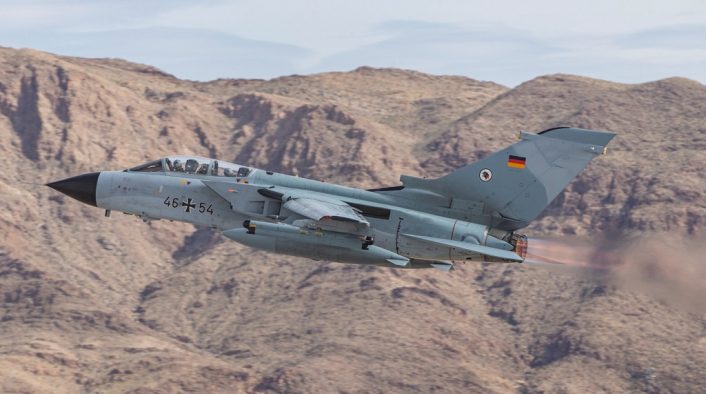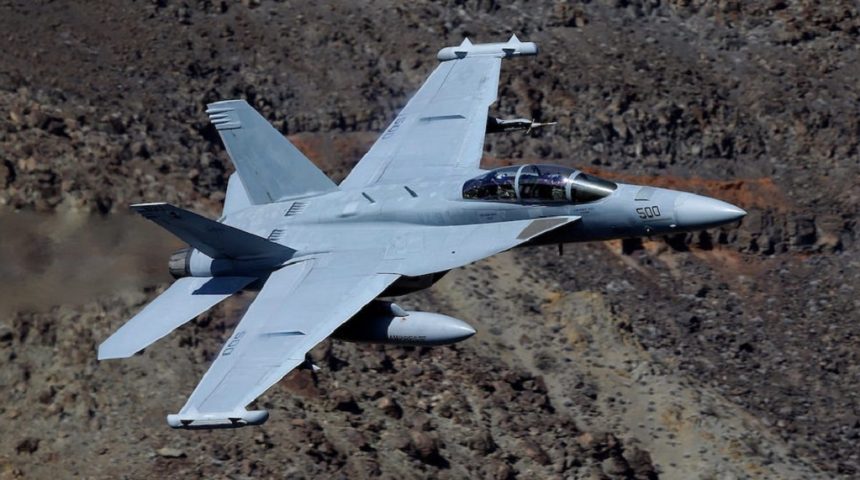U.S. Secretary of Defense has been officially informed about the acquisition program by his German counterpart in an e-mail last week.
About one month ago, we reported about the German government evaluating the acquisition of a mixed fleet of 45 Boeing F/A-18 Super Hornet and EA-18G Growler fighter aircraft, alongside 90 new Eurofighter Typhoons, to replace the ageing Tornado in both the IDS and ECR aircraft. According to the German newspaper Der Spiegel, the Defense Minister Annegret Kramp-Karrenbauer confirmed in an e-mail to U.S. Secretary of Defense Mark Esper on April 16 that Bundeswehr will buy 30 F/A-18 Super Hornets, to replace the nuclear capability of the Tornado IDS, and 15 EA-18G Growlers to replace the Electronic Warfare (EW) capability of the Tornado ECR.
As we previously wrote here at The Aviationist:
However, before selecting what will replace the Tornado, Germany needs to satisfy an important requirement: the new aircraft has to be nuclear capable as the country is part of NATO’s nuclear sharing agreement. Because of this, as reported by the German business newspaper Handelsblatt, the Ministry of Defense has plans to purchase of up to 90 Eurofighters and 45 F/A-18s. Neither the Eurofighter nor the Super Hornet are nuclear capable, but the MoD seems to have assessed with United States that the integration of the B-61 nuclear bomb will be faster on the American-made aircraft, while it would take from three to five years longer on the Eurofighter.
The news about this e-mail sparked a lot of debate as it was sent the same day the Minister had to cancel a public presentation of the acquisition program. Some members of the Parliament are complaining that the U.S. based Boeing should not be granted an weapons deal worth several billion dollars instead of the German Airbus. At the same time, the Social Democrats are playing for time as a part of the party wants to leave NATO’s nuclear sharing agreement and remove the 20 U.S. B-61 atomic bombs from Büchel Air Base, adding also that they were not informed from the Minister about the decision.

Another problem is due to the program’s financing and the current COVID-19 pandemic, as billion-dollar aid programs for the economy could make more sense in the coming months and years than the expensive modernization of the Bundeswehr, according to Der Spiegel’s report. The report also cites a confidential analysis for the Minister of Defense which says that the major economic aid programs “already have a noticeable impact on security and defense policy” and Germany should expect “questioning and turning away” from joint military projects in NATO and the EU in the coming months.
No further comments about the matter were provided by the German MoD or the U.S. SecDef, however a Boeing spokesman released a statement after the news about the e-mail came out: “While we continue to await an official announcement, we remain committed to working in support of both the German and U.S. governments on this important procurement which is ideally suited to meet Germany’s strike fighter and electronic warfare aircraft requirements.”









